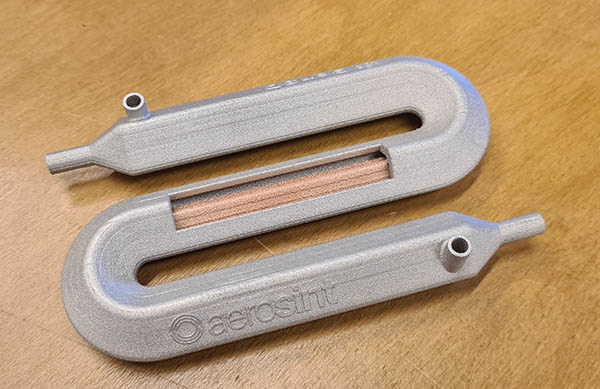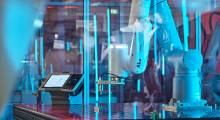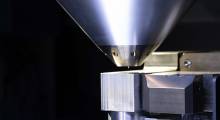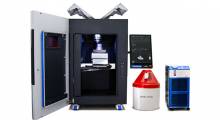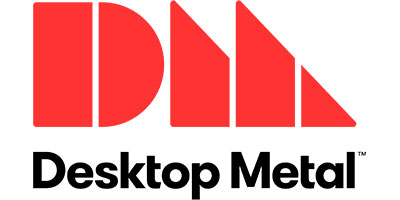Desktop Metal Inc. yesterday said it has acquired Aerosint SA, a pioneer in multi-material deposition systems for powder-based additive manufacturing (AM) systems.
“This transaction advances our strategy to own differentiated print technologies that enable an expanding set of AM 2.0 applications at scale,” stated Ric Fulop, founder and CEO of Desktop Metal. “Multi-material printing is the next frontier in AM. Today, people print parts, but in the future, people will look to print full products, which may be composed of multiple materials. Industrializing Aerosint’s core technology and related powder-processing systems will provide many benefits to the broad adoption of AM solutions.”
Founded in 2016, Aerosint offers a system based on a proprietary digital process that selectively deposits two or more powders to form a single, thin powder layer containing multiple materials. The Herstal, Belgium-based company said its technology enables full three-dimensional control of material placement during 3D printing and can be integrated into any powder-bed AM process, such as laser powder-bed fusion, binder jetting, high-speed sintering, or selective laser sintering.
This new, multi-material approach to powder deposition is designed to support high-speed printing of a broad range of polymers, metals, and ceramics, said Aerosint. It added that its technology can be used in additive manufacturing, powder metallurgy, and beyond, including the printing of multi-functional parts.
Printing method promises unique benefits
As the only high-throughput, multi-material powder recoating system in the market, selective powder deposition can reduce powder waste, material costs, and post-processing time associated with single-material, commercially available powder-bed AM processes, said Aerosint.
In addition, multi-material powder deposition offers benefits including localized optimization of mechanical properties, such as wear resistance or vibration dampening, as well as improved chemical and physical properties, such as thermal and electrical conductivity, corrosion resistance, or aesthetics. The Belgian company cited the following examples of applications for multi-material printing:
- Molds with conformal cooling channels optimized for heat dissipation
- Wear-resistant cutting tools with a hard exterior and a ductile interior
- Conductive metal paths within polymer parts for flexible electronics
- Bi-material luxury goods with superior aesthetics
- RF components with different dielectric and conductive properties
“We look forward to partnering with our new colleagues at Aerosint to mature this unique technology and integrate it into upcoming Desktop Metal products over the next several years,” said Fulop. “We are also excited for Aerosint to independently continue its growth trajectory by offering selective powder deposition solutions and services to third-party manufacturers and customers of powder-based AM systems.”
“At Aerosint, we believe the future of AM is going to be multi-material,” said Edouard Moens de Hase, co-founder and managing director of Aerosint. “We are thrilled to partner with Desktop Metal to accelerate the execution of this vision, now with access to its scale, distribution network, and industry-leading AM 2.0 technology portfolio.”
Aerosint to keep brand within Desktop Metal
Aerosint will operate as a wholly owned subsidiary of Desktop Metal and continue to be led by its founders Moens de Hase and Matthias Hick, who will serve as managing director and innovation director of the Aerosint business, respectively.
Aerosint multi-material products and services will continue to be widely available to the AM industry, with integration into Desktop Metal platforms targeted within the next two years.
Burlington, Mass.-based Desktop Metal said it is accelerating the transformation of manufacturing with an expansive portfolio of 3D printing solutions, from rapid prototyping to mass production. Founded in 2015 by leaders in advanced manufacturing, metallurgy, and robotics, the company claimed it is addressing the unmet challenges of speed, cost, and quality to make AM an essential tool for engineers and manufacturers around the world.
Desktop Metal recently acquired polymer AM company EnvisionTEC and elastomeric parts maker Adaptive3D.
Article topics
Email Sign Up



